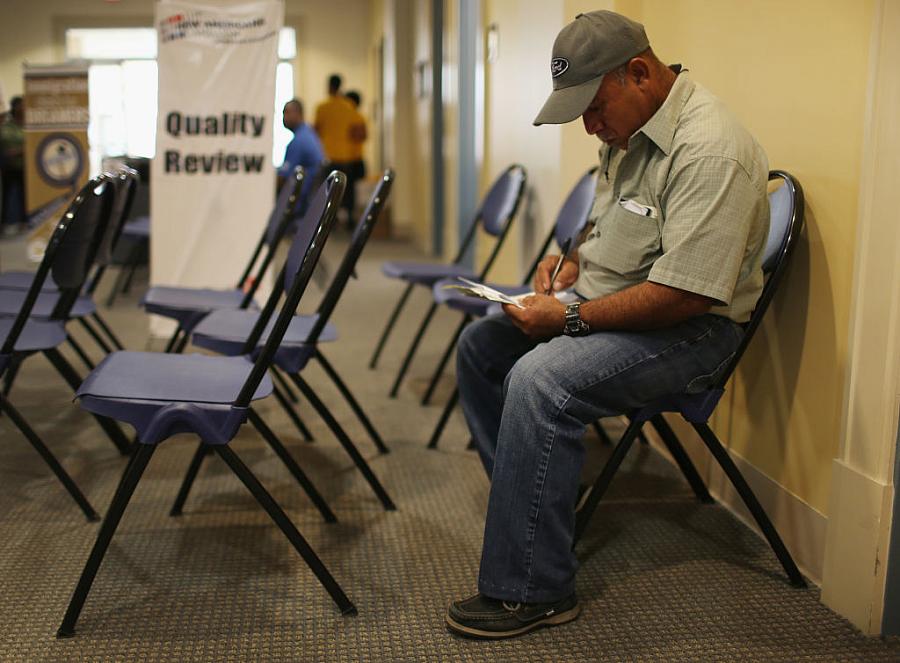I saw firsthand how the public charge rule makes it harder for patients to receive care

(Photo by Joe Raedle/Getty Images)
Last month, the Supreme Court approved the Trump administration’s public charge rule, which allows the government to deny green cards or visas if an immigrant has used government benefits such as food stamps or Medicaid.
It’s hard to overstate the chilling effect this could have on underserved immigrant communities, who already struggle to navigate our health care system. Over the past three years, I’ve worked as a health care navigator for an underserved community in Boyle Heights. I’ve heard stories of patients fearing to visit the emergency department because of their immigration status amid the current political climate, but I had never personally witnessed anyone concerned to receive medical attention.
This changed one afternoon when a young man experiencing abdominal pain with bruises approached me in the emergency department of one of Los Angeles County’s largest safety net hospital, which serves predominantly low-income, uninsured and undocumented populations. The man had been assaulted the night before while riding his bike. He had no medical insurance and declined medical attention at the scene, fearing deportation more than his pain. The man, although in the ED already, was hesitant to even talk to medical staff. Because I was there that afternoon, I was able to reassure the reluctant patient that he could receive medical services without fear of deportation. I also persuaded him to seek medical attention and educated him on how he can better support his health.
Through my experience working at a nonprofit located next to a safety-net hospital, I’ve worked closely with patients visiting their primary care physicians. I’ve screened patients for social and behavioral needs to connect them to services provided at no cost by community organizations. I’ve also observed how patients struggle to advocate for their health due in the face of barriers such as language, limited health education, transportation, miscommunications, and the cultural gaps between providers and patients.
When he was discharged from the hospital, I connected the young assault victim to the county health program for the uninsured, mental health support services for victims of crime, and to free immigration advocacy. He was eligible to petition to change his immigration status, a potentially life-changing move that will give him access to countless other support services for his future health and wellness.
Research has shown that policies targeting the immigrant population highly affect access to health services. It is critical for immigrants to be fully aware of what the public charge rule really is, and the impact it may have on the health of children. U.S. Citizenship and Immigration Services will only consider public benefits received on or after February 24, 2020 when making decisions about green cards.
These new public charge rules mainly apply to employment, tourist, and education-based visa holders as well as family-based visa applicants. There are currently free resources that patients, health care providers and journalists can utilize to better understand the new changes and educate individuals on their potential impacts.
The wary young man attacked on his bike is just one example of how the new public charge rule is likely to make it far harder for vulnerable patients to receive basic care and public benefits, especially those vital to their health. Helping patients navigate these benefits and the broader health care system will be more important than ever as this new rule takes effect.
**
